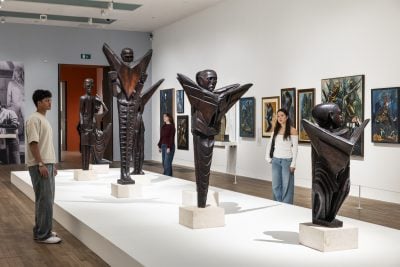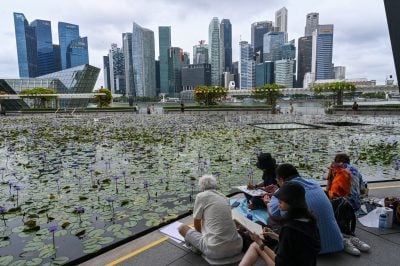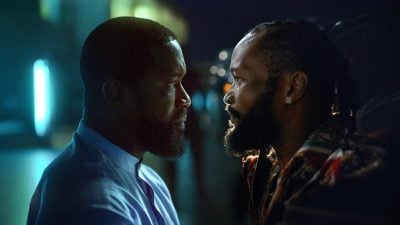Fashion maestro Ozwald Boateng made a striking debut at the Met Gala in New York this May, capturing hearts and minds at the fashion industry’s biggest night with his ability to merge African aesthetics with British craftsmanship.
The designer dressed 16 celebrities attending the Gala, including three of Africa’s biggest musicians, Tems, Burna Boy and Arya Starr, as well as actors Ncuti Gatwa and Jaden Smith.
Boateng says that the theme for the Gala resonated deeply with everything he stood for.
“This year’s Met Gala theme – Superfine: Tailoring Black Style – was entirely in my wheelhouse. When the opportunity came to dress a number of guests for the evening, it wasn’t something I had to think twice about. I’ve spent the last four decades redefining tailoring through the lens of African identity, so it was the right moment to bring that narrative to one of fashion’s biggest global stages. In many ways, this moment was a continuation of a journey I’ve been on for the last years – one that began in the early days of my career and has crescendoed through landmark events like my 2019 show at the Apollo Theater in Harlem. That show, inspired by the Harlem Renaissance, was a cultural reset – a celebration of black excellence and a reassertion of tailoring as a powerful form of storytelling. It was about reclaiming our past to inform our future, and doing it on our own terms,” Boateng tells African Business.
A 40-year journey
Boateng earned his stripes as a tailor in London in the 80s, championing the idea that a good suit was a statement of identity, power and heritage. His bold and flamboyant suit designs took off in the 90s, and in 1994, Boateng staged his first runway show in Paris – marking the first time a British menswear tailor achieved such a feat.
In 1995, he became the first black tailor – at the age of just 28 – to open a store on London’s Savile Row, setting a new standard for inclusion in the elite of British fashion.
Born to Ghanaian immigrants in London, Ozwald Boateng used Ghana’s traditional kente cloth to create his signature “tribal” pattern. His eponymous brand is known for its form-fitting suits, frequently accented with West African-inspired designs that feature bold colours. Two years ago he oversaw the design of outfits worn by British Airways cabin crew.
The future is expansion
For fashion brands, having celebrities wear their designs at the Met Gala can lead to increased sales and brand recognition among global audiences. Boateng recognises the opportunity that this presents and says that he’s currently focused on raising capital to “push the brand globally”.
“Visibility on a platform like the Met Gala has real commercial weight. It introduces the brand to new audiences, new markets, and new levels of demand. But beyond the short-term attention, it’s about long-term brand equity.
“The looks we created weren’t just red carpet moments, they were proof points in a broader strategy to scale the business globally.
“This year marks 40 years of my work in fashion, and it’s no coincidence that we’re actively expanding the brand across new verticals. We recently debuted a fine jewellery capsule in collaboration with Hirsh London. We’ve also showcased our new eyewear line, developed in partnership with Odette Lunettes, introducing a fresh way for audiences to access the brand’s aesthetic.
“These collaborations speak to a future where the business is both creatively visionary and commercially sustainable. We’re growing our digital footprint, deepening licensing and partnership models, and moments like the Met Gala help accelerate that trajectory by showing exactly what the brand can stand for, at scale.”
This comes even as the African Export-Import Bank (Afreximbank), which supported Boateng’s showcase at the Gala, doubled its credit commitment to the global African creative industry to $2bn, signalling strong institutional backing for African creatives such as Boateng.
Benedict Oramah, president of Afreximbank, noted that Boateng’s presence at the Gala exemplified how the Bank’s Creative Africa Nexus (CANEX) initiative helps African talents gain international recognition, potentially opening doors to new markets and investors.
“Just recently, I joined a powerful conversation at Atelier Jolie with Angelina Jolie alongside Afreximbank and CANEX, an initiative committed to building long-term, scalable value within Africa’s creative industries,” Boateng says. “The visibility is there, but we must now match it with sustained investment in local talent, infrastructure, and global distribution networks. That’s how we move from recognition to real impact.”
Want to continue reading? Subscribe today.
You've read all your free articles for this month! Subscribe now to enjoy full access to our content.
Digital Monthly
£8.00 / month
Receive full unlimited access to our articles, opinions, podcasts and more.
Digital Yearly
£70.00 / year
Our best value offer - save £26 and gain access to all of our digital content for an entire year!

 Sign in with Google
Sign in with Google 



